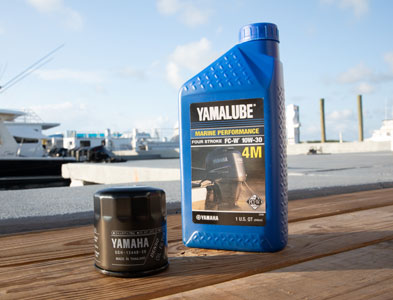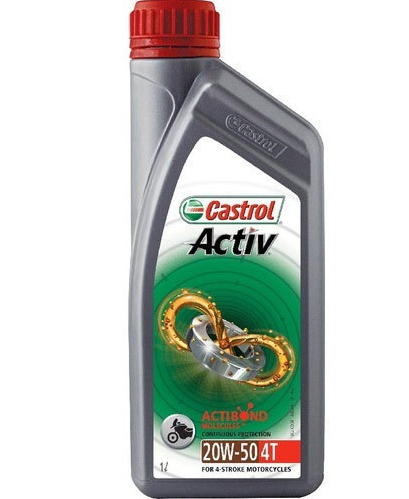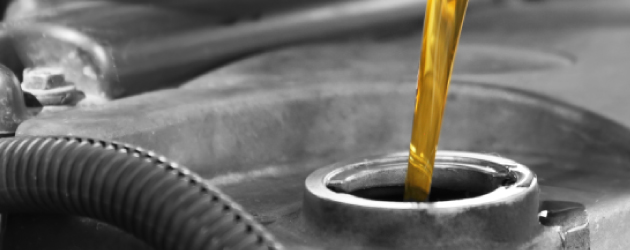For your outboard, it is crucial to use the recommended oil type to ensure optimal performance and longevity.
Choosing The Right Oil For Your Outboard
When it comes to maintaining your outboard engine, selecting the right oil is crucial for its performance and longevity. Factors to Consider when choosing the right oil include the manufacturer’s recommendations, the type of water conditions you’ll be navigating, and the age of your outboard.
Factors To Consider
Before you make a decision, consider the manufacturer’s specifications for your outboard. The type of water you’ll be in, whether it’s freshwater or saltwater, also affects the oil choice. Additionally, the age of your outboard matters, as older engines may require different formulations.
Synthetic Vs. Mineral Oils
When deciding between synthetic and mineral oils, keep in mind that synthetic oils offer better protection and performance, especially in extreme conditions. However, mineral oils may be suitable for older engines or those with specific manufacturer recommendations.
The Importance Of Manufacturer’s Recommendations
Following Guidelines
Adhering to the manufacturer’s recommendations for the type of oil to use in your outboard motor is crucial for optimal performance and longevity. Following these guidelines ensures that the engine operates smoothly and efficiently, reducing the risk of malfunctions and breakdowns.
Warranty Considerations
Using the recommended oil for your outboard motor is also essential for warranty considerations. Deviating from the manufacturer’s specifications can void the warranty, potentially leading to costly repairs or replacements that could have been avoided by simply using the correct oil.
Viscosity Grades Explained
Viscosity grades play a crucial role in determining the right type of oil for your outboard motor. Understanding viscosity and matching it to specific conditions is essential for optimal performance and protection of your engine. Let’s delve into the details of viscosity grades and their significance in choosing the right oil for your outboard motor.
Understanding Viscosity
Viscosity refers to the oil’s resistance to flow. Lower viscosity oils are thinner and flow more easily, while higher viscosity oils are thicker and flow more slowly. The Society of Automotive Engineers (SAE) assigns viscosity grades to oils, with lower numbers indicating thinner oils and higher numbers representing thicker oils. For example, SAE 10W-30 oil has lower viscosity at cold temperatures and higher viscosity at operating temperatures.
Matching Viscosity To Conditions
When selecting oil for your outboard motor, consider the operating conditions. In colder climates or during winter, opt for oil with a lower viscosity grade (e.g., SAE 5W-30) to ensure easier cold starts and better flow. For warmer climates or heavy-duty use, higher viscosity oils (e.g., SAE 20W-50) provide better protection under high temperatures and heavy loads.

Credit: www.discoverboating.com
Synthetic Oils: Pros And Cons
Synthetic oils have become increasingly popular for use in outboard motors due to their ability to resist breakdown and maintain viscosity in extreme temperatures. However, they can be more expensive than conventional oils, and may not be necessary for all types of outboard motors.
It is important to consult your owner’s manual and consider your specific usage before deciding which type of oil to use.
When it comes to choosing the right oil for your outboard engine, synthetic oils are a popular option. They are man-made oils that offer a range of benefits over conventional oils. However, they also have some potential drawbacks that you should be aware of.Benefits Of Synthetic Oils
Synthetic oils are designed to offer better performance and protection than conventional oils. Here are some of the benefits of using synthetic oils in your outboard engine:- Improved Lubrication: Synthetic oils have a more consistent molecular structure, which allows them to lubricate your engine more effectively than conventional oils.
- Increased Engine Life: Synthetic oils can help extend the life of your engine by reducing wear and tear on its components.
- Better Performance in Extreme Temperatures: Synthetic oils are designed to perform well in both hot and cold temperatures, which can be particularly beneficial if you operate your boat in extreme conditions.
- Less Viscous: Synthetic oils are less viscous than conventional oils, which means they flow more easily through your engine and require less energy to do so.
Potential Drawbacks
While synthetic oils offer many benefits, there are also some potential drawbacks to using them in your outboard engine. Here are a few things to keep in mind:- Higher Cost: Synthetic oils are generally more expensive than conventional oils, which can be a concern if you are on a tight budget.
- Not Suitable for All Engines: Some outboard engines are not designed to work with synthetic oils, so it is important to check your owner’s manual before making the switch.
- Possible Seal Swelling: Synthetic oils can cause some types of seals to swell, which can lead to leaks and other problems.
Mineral Oils: When To Choose Them
Mineral oils are a popular choice for outboard engines due to their specific advantages and limitations.
Advantages Of Mineral Oils
- Cost-effective and widely available.
- Provide good lubrication for standard outboard engines.
- Have a stable composition under various temperature conditions.
Limitations
- May not offer optimal performance for high-tech or newer outboard models.
- Require more frequent changes compared to synthetic oils.
- Not suitable for extreme operating conditions or high-performance applications.

Credit: yamahaoutboards.com
Mixing Oils: Is It Ever Safe?
For outboard engines, choosing the right oil is crucial. Opt for a high-quality marine oil specifically designed for outboards to ensure optimal performance and protection against corrosion. Mixing oils may not always be safe, so stick to the manufacturer’s recommendations to prevent damage to your engine.
Mixing Oils: Is It Ever Safe? Mixing oils is a topic of debate among boat owners. Some believe that it is safe to mix oils, while others believe it can cause serious damage to the engine. The truth is, mixing oils can be risky and should be done with caution. In this section, we’ll discuss the risks of mixing oils and best practices to follow. H3: Risks of Mixing Oils Mixing oils can lead to a number of issues, including decreased engine performance and potential engine damage. Different oils have different properties and additives, and mixing them can cause them to cancel each other out or create harmful chemical reactions. Additionally, mixing oils can cause sludge buildup in the engine and lead to premature engine wear. H3: Best Practices If you must mix oils, it’s important to follow some best practices to minimize risks. First, always use oils with the same viscosity and API service rating. This will help ensure that the oils are compatible and won’t cause any chemical reactions. Additionally, always mix oils in small quantities and thoroughly mix them together before adding them to the engine. Finally, never mix synthetic and conventional oils, as they have different properties and can cause serious engine damage. In conclusion, mixing oils is a risky practice that should be avoided whenever possible. If you must mix oils, follow the best practices outlined above to minimize risks. By taking these precautions, you can help ensure that your outboard engine runs smoothly and lasts for years to come.Oil Additives: Enhancing Performance
Oil Additives play a crucial role in enhancing the performance of your outboard engine. They are specially formulated to improve lubrication, reduce friction, and protect engine components.
Types Of Additives
There are various types of oil additives available for outboard engines, each designed to address specific performance needs. Common types include:
- Anti-wear additives
- Viscosity index improvers
- Corrosion inhibitors
- Detergents and dispersants
Choosing The Right Additives
When selecting oil additives for your outboard engine, consider factors such as the engine’s age, operating conditions, and manufacturer recommendations. It’s essential to choose additives that are compatible with your engine oil to optimize performance.
Regular Maintenance: Extending Engine Life
Regular maintenance is vital for extending the life of your outboard engine. It’s important to use the right type of oil for your engine. Consult your owner’s manual or a professional to determine which oil is best for your specific outboard model.
Importance Of Regular Oil Changes
Regular oil changes are crucial for maintaining your outboard engine’s performance.
Fresh oil helps reduce friction and prevent engine wear.
Ensuring proper lubrication extends the engine’s lifespan.
Signs Your Oil Needs Changing
Look out for dark, gritty oil or metal particles, indicating contamination.
Check for burnt oil smell or excessive engine noise as signs of deteriorating oil.
Regular oil analysis can help determine the optimal oil change intervals.

Credit: www.boats.com
Frequently Asked Questions
What Kind Of Oil Should I Use On My Outboard?
Outboard motors typically require a specific type of oil known as marine-grade oil. This oil is specially formulated to withstand the harsh conditions of marine environments, providing optimal lubrication and protection for your outboard engine. It is crucial to refer to your outboard motor’s manual for the recommended oil type and viscosity to ensure proper performance and longevity of your engine.
Regular oil changes are also important to maintain the efficiency and reliability of your outboard motor.
Conclusion
When choosing oil for your outboard, consider manufacturer recommendations for optimal performance and longevity. Regular maintenance and using the right oil will help keep your engine running smoothly. Make informed choices to protect your investment and enjoy your boating adventures hassle-free.


